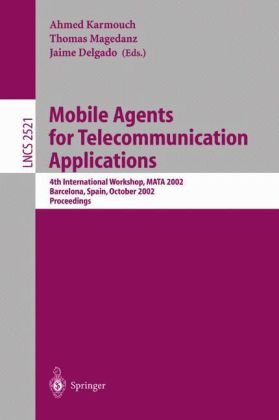

Most ebook files are in PDF format, so you can easily read them using various software such as Foxit Reader or directly on the Google Chrome browser.
Some ebook files are released by publishers in other formats such as .awz, .mobi, .epub, .fb2, etc. You may need to install specific software to read these formats on mobile/PC, such as Calibre.
Please read the tutorial at this link: https://ebookbell.com/faq
We offer FREE conversion to the popular formats you request; however, this may take some time. Therefore, right after payment, please email us, and we will try to provide the service as quickly as possible.
For some exceptional file formats or broken links (if any), please refrain from opening any disputes. Instead, email us first, and we will try to assist within a maximum of 6 hours.
EbookBell Team

4.8
64 reviewsResearch in the telecommunications ?eld suggests that future network infrastructures will be composed of sensors, wireless devices, personal digital assistants, networked appliances and numerous types of services. This brings up key issues such as unfamiliar users and service interfaces, discovering services that match user’s needs, ?nding and tracking people and resources, establishing useful contacts and appropriate associations between resources and users, and managing a large number of dynamic network entities all of which must be performed in an automated and proactive manner with a certain degree of autonomy and mobility. These are the main characteristics exhibited by mobile software agent behavior, making the technology more suitable for future telecommu- cation applications and services. It also reveals the tremendous potential for the mobile agent paradigm. The potential complexity of mobile agent operation requires that mechanisms exist on several levels to coordinate its activities. For this purpose research and development on various forms of mobile agents continues to grow in a staggering fashion. Age- based applications and services such as network management, e-commerce, information gathering on the Internet, mobile communications, active networking, and most recently ad hoc communications are becoming increasingly popular and continue to contribute to the development and to the success of mobile agent technology. In addition it is well established that mobile agents is an ideal sister technology for mobile ad hoc networks where users, applications, services, devices and networks are mobile and dynamically con?gurable.